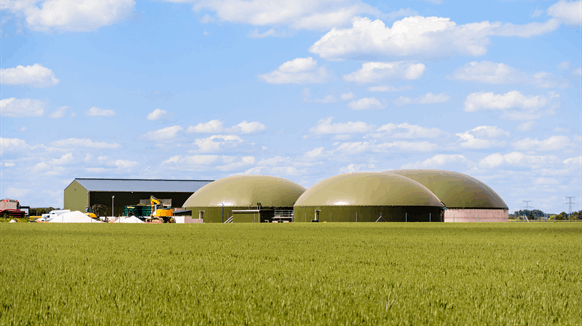
Eni SpA and Egypt’s Bioenergy Association for Sustainable Development, affiliated with the Environment Ministry, signed Monday an agreement for a feasibility study on biogas production in the North African country using animal and agricultural waste.
“The joint study will assess the feasibility of building a biodigestion plant capable of treating agricultural and animal waste, particularly from livestock farming”, Italy’s state-controlled energy major Eni said in a press release.
“The biogas produced by biodigestion can generate renewable electricity and heat, while also producing higher-value organic fertilizers for use in agriculture, further contributing to the circular economy. The initiative would also reduce greenhouse gas emissions from agricultural waste and byproducts, while generating high-quality carbon credits.
“The agreement is in line with the Ministry of Environment’s objective to promote the dissemination of biogas technology across Egyptian governorates and to develop innovative and sustainable energy solutions that contribute to emission reduction and sustainable development.
“It also fits in Eni’s long-term strategy to achieve carbon neutrality by 2050 through a multi-faceted approach that includes developing integrated solutions to reduce emissions and enhance resource efficiency”.
Elsewhere in Africa Eni earlier this year inaugurated its first vegetable oil extraction plant in the Republic of the Congo, unlocking new feedstock capacity for its biorefineries.
The facility in Loudima, in the southern part of the Central African country, can produce up to 30,000 million metric tons per annum (MMtpa) of vegetable oil. The plant will use crops grown on “degraded and underutilized land or through intercropping systems, as part of an innovative regenerative agriculture project developed in collaboration with local stakeholders”, Eni said in a statement June 28.
On May 28 Eni said it had signed an agreement with Cote d’Ivoire’s Agriculture Ministry to explore the potential of cultivating biofuel crops in the West African country.
The memorandum of understanding “aims to enhance the rubber (hevea) supply chain and to assess the introduction of oilseed crops on marginal and degraded lands, thereby contributing to the country’s sustainable agricultural development without competing with food production and forest ecosystem”, Eni said.
Eni said then an existing project in collaboration with the Ivorian Federation of Rubber Producers is already “enabling the valorization of rubber residues – a crop widely cultivated in the country – by transforming them into raw materials for biofuel production, generating economic and social benefits for thousands of farmers”.
Eni has set goals to grow its biorefining capacity from the current 1.65 MMtpa to over three MMtpa by 2028 and more than five MMtpa by 2030, with the potential to produce up to two MMtpa of SAF by 2030.
Eni’s current biofuels production come from two Italian plants in Venice and Gela and a United States plant in Louisiana, operated under its 50 percent-owned joint venture St Bernard Renewables LLC, according to the company.
Source: By Jov Onsat from Rigzone.com
